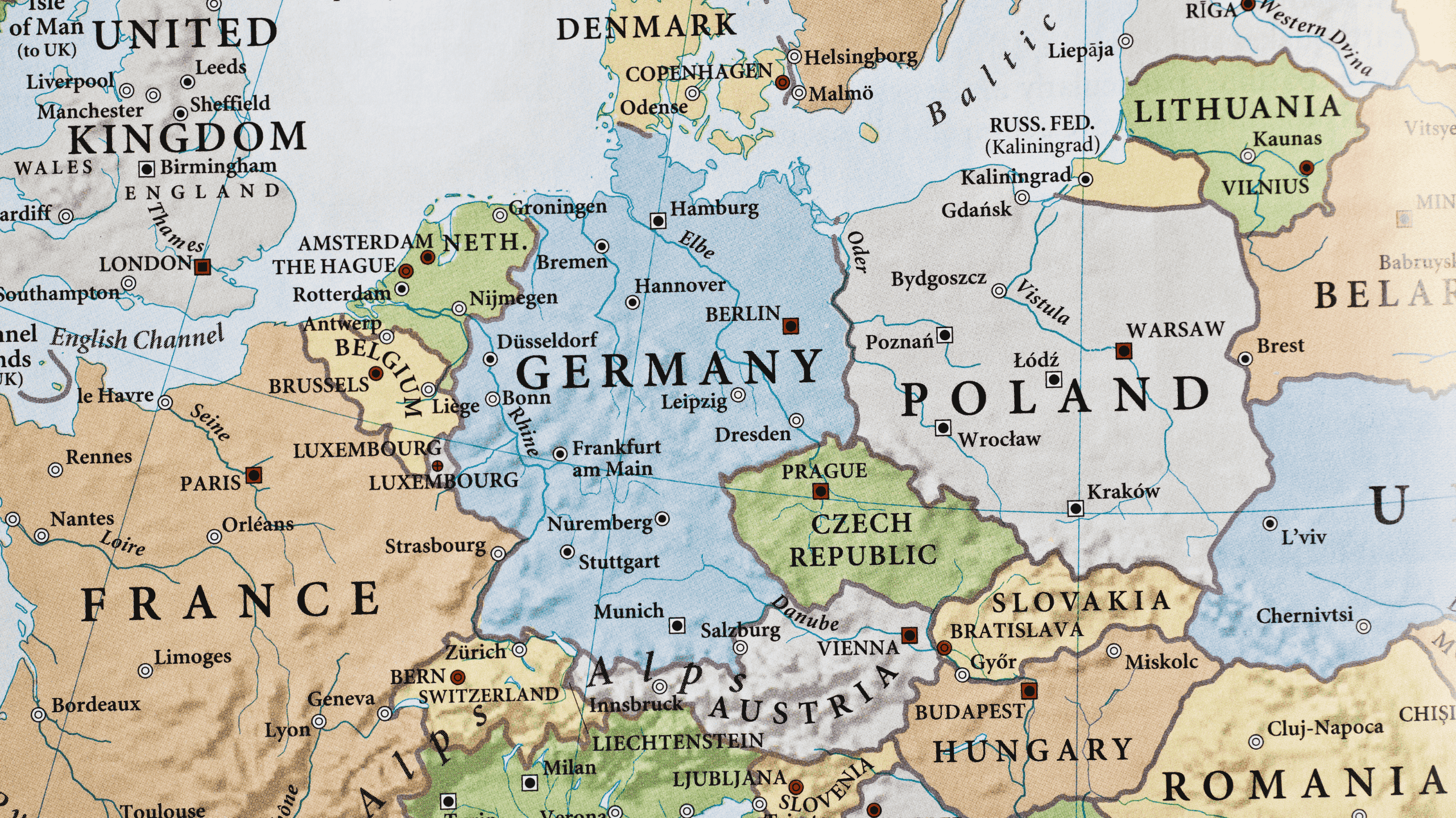The History of Europe

Overview
The History of Europe is a fascinating, comprehensive exploration of how the European continent evolved from ancient civilisations into the modern European Union. This course delves into the political, cultural, and intellectual developments that shaped the European identity — from the fall of the Roman Empire to the rebirth of the Renaissance, the revolutions of thought during the Enlightenment, and the social transformations of the 20th and 21st centuries.
Designed to provide both depth and clarity, The History of Europe takes you on a captivating journey through more than three thousand years of dynamic change. Whether you’re a history enthusiast, an academic learner, or someone seeking a deeper understanding of the forces that shaped today’s Europe, this course offers the perfect blend of scholarly insight and engaging storytelling.
Throughout the ten carefully designed modules, students will explore Europe’s ancient roots, its medieval kingdoms, the dramatic religious upheavals of the Reformation, and the rise of nationalism and industrial power that set the stage for global influence. The course also investigates the turbulent events of the two World Wars, the reconstruction of Europe, and the ongoing process of European integration.
With The History of Europe, you’ll gain not only knowledge of major historical events but also an appreciation for the cultural and intellectual currents that connected — and often divided — the peoples of this remarkable continent.
Description
The History of Europe is more than just a timeline of events — it’s a narrative of human ambition, conflict, creativity, and resilience. Europe’s story is filled with triumphs and tragedies, revolutions and renaissances, empires and nation-states. This course examines those intricate patterns of change that gave rise to the modern European landscape and global influence.
In The History of Europe, you’ll start by uncovering the foundations of ancient Europe: the Greek city-states, the rise and fall of the Roman Empire, and the influence of early Celtic and Germanic tribes. You’ll explore how early civilisations created the cultural DNA of Europe — in politics, art, philosophy, and law.
Then, you’ll move into the Middle Ages, tracing how medieval societies rebuilt after Rome’s collapse. Learn about the birth of Christian Europe, the feudal system, the power of the Church, and the formation of early kingdoms that would later evolve into today’s European nations.
From there, you’ll experience the Renaissance, a cultural rebirth that revolutionised art, science, and human thought. Explore the works of da Vinci and Michelangelo, the discoveries of Galileo, and the humanist movement that redefined Europe’s intellectual future.
The course also covers the Reformation and Religious Wars, revealing how faith and politics collided to reshape Europe’s map. The Protestant Reformation, led by figures like Martin Luther, challenged centuries of Church authority, leading to wars, reforms, and a new sense of religious identity.
Moving forward, you’ll study the Age of Enlightenment, where reason and philosophy became guiding lights. The course discusses how thinkers like Voltaire, Rousseau, and Kant inspired revolutions that changed governance and society forever — paving the way for democracy and individual liberty.
In the 19th century, nationalism, industrialisation, and empire-building defined Europe’s transformation. You’ll discover how revolutionary movements and social reforms shaped modern political ideologies, from liberalism to socialism.
The narrative then shifts to the World Wars, the most defining events in European and global history. You’ll examine the causes, consequences, and human costs of both conflicts, as well as the rebuilding efforts that followed.
Finally, the course brings you to Contemporary Europe, where the continent faces new challenges and opportunities — from the creation of the European Union to modern social movements, migration, and globalisation.
Each module of The History of Europe combines academic rigour with accessible explanations. You’ll engage with maps, case studies, and narratives that bring historical events to life. The course not only gives you factual knowledge but also helps you interpret history critically, drawing connections between past events and current European affairs.
By the end of this course, you’ll understand how Europe’s history continues to shape its political systems, social dynamics, and cultural identity today.
Who Is This Course For
The History of Europe is perfect for:
-
Students of History and Humanities who wish to strengthen their academic understanding of European civilisation.
-
Educators and Researchers looking for structured and CPD-accredited material to support teaching, writing, or research projects.
-
Travel Enthusiasts and Cultural Explorers who want to enrich their appreciation of European art, architecture, and heritage through a deeper understanding of its past.
-
Writers, Journalists, and Content Creators who cover European politics, society, or culture and need a reliable foundation in historical context.
-
Professionals and Lifelong Learners who are passionate about global affairs and want to develop analytical thinking through historical study.
Whether you are preparing for advanced academic pursuits or simply expanding your intellectual horizons, The History of Europe offers an accessible yet in-depth learning experience that will enrich your perspective on modern Europe and the wider world.
This course is especially suitable for those with interests in:
-
European history and politics
-
Cultural and intellectual movements
-
Religion, philosophy, and art history
-
Social evolution and economic development
-
Historical writing and research
The flexible, self-paced design means you can learn at your convenience — perfect for busy learners or professionals balancing multiple commitments.
Curriculum Overview
Module 1: Ancient Europe and Early Civilisations
Explore the origins of European civilisation — from prehistoric cultures to Greek democracy and Roman empire-building. Learn how ancient trade, warfare, and philosophy laid the groundwork for Western civilisation.
Module 2: The Early Middle Ages
Examine post-Roman Europe, feudalism, and the spread of Christianity. Discover how new kingdoms emerged amidst migration and conflict, shaping medieval identity.
Module 3: The High Middle Ages (c. 1000–1300 CE)
Dive into the rise of monarchies, the power of the Church, the Crusades, and the cultural developments that defined Europe’s medieval high point.
Module 4: The Late Middle Ages (c. 1300–1500 CE)
Uncover the Black Death, the Hundred Years’ War, and the social upheavals that paved the way for modern Europe.
Module 5: The Renaissance and Humanism (c. 1300–1600 CE)
Experience the rebirth of art, science, and philosophy. Learn about the humanist thinkers and artists who redefined Europe’s self-image and vision of knowledge.
Module 6: The Reformation and Religious Wars
Trace the Protestant Reformation’s impact on European unity, the rise of new denominations, and the political and cultural aftermath of religious division.
Module 7: The Age of Enlightenment and Revolution
Study how Enlightenment ideas inspired revolutions, challenged monarchies, and promoted democracy, human rights, and rational thought.
Module 8: The 19th Century and Nationalism
Analyse the forces of industrialisation, empire-building, and national identity that transformed Europe into a global powerhouse.
Module 9: The World Wars and Modern Europe
Understand the causes, conflicts, and consequences of both World Wars, and how Europe rebuilt itself in their aftermath.
Module 10: Contemporary Europe and the European Union
Investigate post-war recovery, European integration, and the ongoing evolution of the European Union. Explore how contemporary issues reflect Europe’s complex history.
FAQ
Q1. What is The History of Europe course about?
This course explores the entire timeline of European civilisation — from ancient Greece and Rome to modern Europe and the European Union. It combines political, cultural, and intellectual history to give you a complete understanding of how Europe evolved over time.
Q2. Do I need a background in history to join?
No prior experience is required. The History of Europe is designed for all learners — from beginners to those with an academic interest. The course starts with fundamental concepts and gradually moves toward advanced discussions.
Q3. How long does it take to complete The History of Europe?
You can learn at your own pace. Most learners complete the course within 4–6 weeks, depending on study time. You’ll have full lifetime access, so you can revisit lessons anytime.
Q4. Will I receive a certificate?
Yes. Upon successful completion, you will receive a CPD-accredited certificate that recognises your achievement and enhances your academic or professional credentials.
Q5. How is The History of Europe taught?
The course combines multimedia lectures, reading materials, interactive activities, and quizzes to ensure a well-rounded understanding. Each module is designed to be engaging and informative, helping you learn history in a structured yet flexible format.
Q6. Why should I study European history?
Understanding European history helps you interpret the origins of modern democracy, culture, and international relations. Europe’s story is the foundation of many global systems — studying it offers valuable insights into current world events.
Q7. Is the course suitable for teachers or researchers?
Absolutely. The History of Europe offers comprehensive content aligned with academic and CPD standards, making it ideal for educators, writers, and researchers who wish to enrich their work with historical knowledge.
Q8. Does the course cover recent European events?
Yes, the final module explores post-1945 Europe, including the rise of the European Union, post-Cold War dynamics, Brexit, and current social and political movements shaping the 21st century.
Q9. What makes The History of Europe different from other history courses?
This course stands out for its balance between accessibility and depth. It presents Europe’s complex past in clear, engaging language while maintaining academic integrity. You’ll gain both factual knowledge and analytical skills to think critically about history.
Q10. Can I access The History of Europe from anywhere?
Yes. This is a fully online course, available globally. All materials are accessible from any device — desktop, tablet, or mobile — allowing you to study wherever and whenever it suits you.
Why Enrol in The History of Europe Now
Europe’s history is not just about the past — it’s the story of how modern civilisation came to be. By studying The History of Europe, you’ll unlock an understanding of the ideas, revolutions, and movements that continue to influence the modern world.
This is your opportunity to learn history in a way that connects the dots between the ancient and the contemporary, the local and the global. Whether for personal development, professional growth, or intellectual curiosity, this course offers immense value and recognition.
Enrol today to begin your journey through The History of Europe — and discover how the legacy of its past continues to shape the world we live in today.
Curriculum
Course Content
The History of Europe
-
Module 1_ Ancient Europe and Early Civilizations
00:00 -
Module 2_ The Early Middle Ages
00:00 -
Module 3_ The High Middle Ages (c. 1000–1300 CE)
00:00 -
Module 4_ The Late Middle Ages (c. 1300–1500 CE)
00:00 -
Module 5_ The Renaissance and Humanism (c. 1300–1600 CE)
00:00 -
Module 6_ The Reformation and Religious Wars
00:00 -
Module 7_ The Age of Enlightenment and Revolution
00:00 -
Module 8_ The 19th Century and Nationalism
00:00 -
Module 9_ The World Wars and Modern Europe
00:00 -
Module 10_ Contemporary Europe and the European Union
00:00


